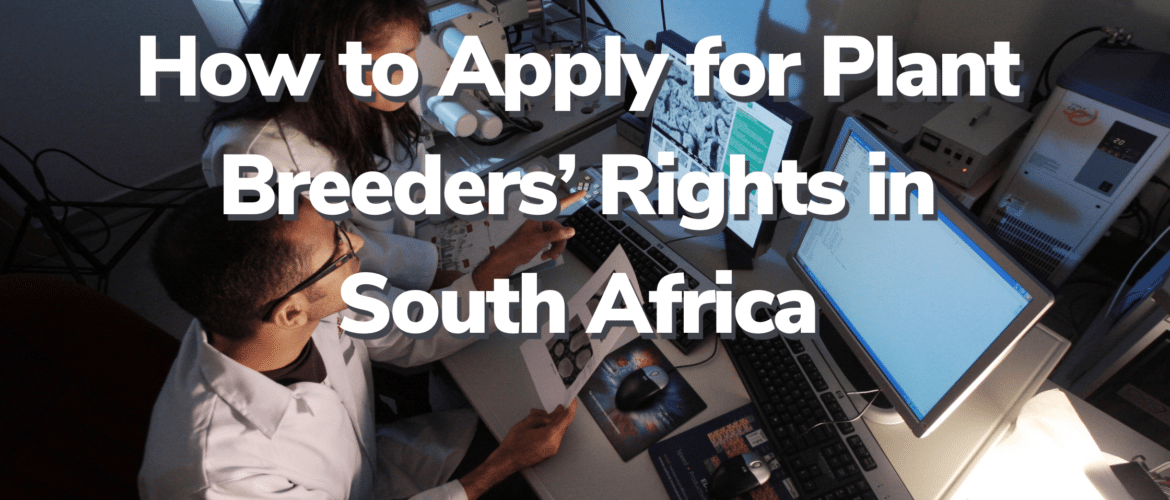
How to Apply for Plant Breeders’ Rights in South Africa
- If you are propagating a new plant variety, it’s important to register for plant breeders’ rights (PBR) to protect your investment. So, how do you apply for plant breeders’ rights in South Africa?
What are plant breeders’ rights?
A plant breeders’ right is a form of intellectual property right granted to breeders of new plant varieties to protect their varieties from exploitation without their permission. Plant breeders’ rights prevent third parties from propagating certain new varieties of plants that have been developed by a plant breeder.
Plant breeders’ rights in South Africa are governed by the Plant Breeders’ Rights Act 15 of 1976, which is intended to “provide for a system whereunder plant breeders’ rights relating to varieties of certain kinds of plants may be granted and registered; for the requirements which have to be complied with for the grant of such rights; for the protection of such rights and the grant of licences in respect of the exercise thereof; and to provide for incidental matters”.
| Learn more about PBR: Comprehensive Guide to Plant Breeders’ Rights |
What are the conditions of the PBR Act?
- New: Has not been sold or otherwise disposed of by the breeder for more than one year in South Africa
- Distinct: Clearly distinguishable from any other variety of the same kind of plant
- Uniform: With regards to the characteristics of the variety in question
- Stable: Characteristics remain unchanged after repeated propagation
Who can apply for plant breeders’ rights?
Only individual breeders or breeding institutions may apply for plant breeders’ rights. Foreign breeders can only apply for PBR through an agent in South Africa.
How to apply for plant breeders’ rights in South Africa?
Step 1: Apply for registration with the Department of Agriculture, Forestry and Fisheries (DAFF)
To apply for PBR, you’ll need to submit an application at DAFF together with the prescribed application fees and documents. The application and relevant technical questionnaires may be obtained from the office of the Registrar or from the Department of Agriculture, Forestry and Fisheries website.
The application will include:
- Details of the applicant
- A description of a typical plant of the variety concerned
- The procedure used for the variety’s maintenance and reproduction
- Colour illustrations showing characteristics of leaf, stalk and fruit or flower shape
- An indication of the proposed denomination of the variety, according to a set of rules from an international union (UPOV)
- Details of corresponding foreign rights
Costs to register a variety
The cost for registration and examination of a new variety will depend on the kind of plant, the amount of work required to prepare documents and the cost to respond to any objections raised by the Registrar.
Step 2: Application examined
The application is examined by the authorities. They will generally require samples of the plant for testing.
How long does the examination process take?
The plant breeders’ rights examination process normally takes between three and five years. During this time, a variety may not be sold or commercially exploited in South Africa unless express permission has been obtained from the authorities.
Provisional protection
You can apply for provisional protection during the examination period, which allows you the same protection as if a plant breeders’ right has been registered. Provisional protection will be in place until all tests have been completed and you are granted plant breeders’ rights. This is recommended for crops where tests will take more than a year to complete.
Step 3: Your ongoing obligations
Once your rights have been granted, you’ll need to pay the prescribed annual fees every January, maintain the variety, and guarantee that the propagating material is always available. Failure to do so could lead to the Registrar cancelling your plant breeders’ rights.
How long are plant breeders’ rights valid?
The term of plant breeders’ rights is calculated from the date on which a certificate of registration was issued. For vines and trees, rights extend for 25 years; for all other varieties, the duration of plant breeders’ rights is 20 years.
Representation from RegenZ
RegenZ ensures that registered breeds and varieties are represented to the highest standards in Southern African markets. We also provide market development to ensure healthy demand for the new varieties we introduce and work closely with local seed growers to uphold the highest standards of uniformity, stability and quality.
PBR Registrar Contact Details: Office of the Registrar; Registrar: Plant Breeders’ Rights; Postal address: Directorate: Genetic Resources, Private Bag X973, Pretoria, 0001

About the Author: Justin Platt
Justin is the Founder & CEO of Zylem and RegenZ. Justin has a BSc in Plant Pathology and Botany from UKZN. He has been involved in the agricultural services industry since graduating in 1979. Justin has a passion for regenerative agriculture.
